What to plant in July – the best flowers, fruits and vegetables you should sow and grow this month, according to experts
There's still lots to sow this month

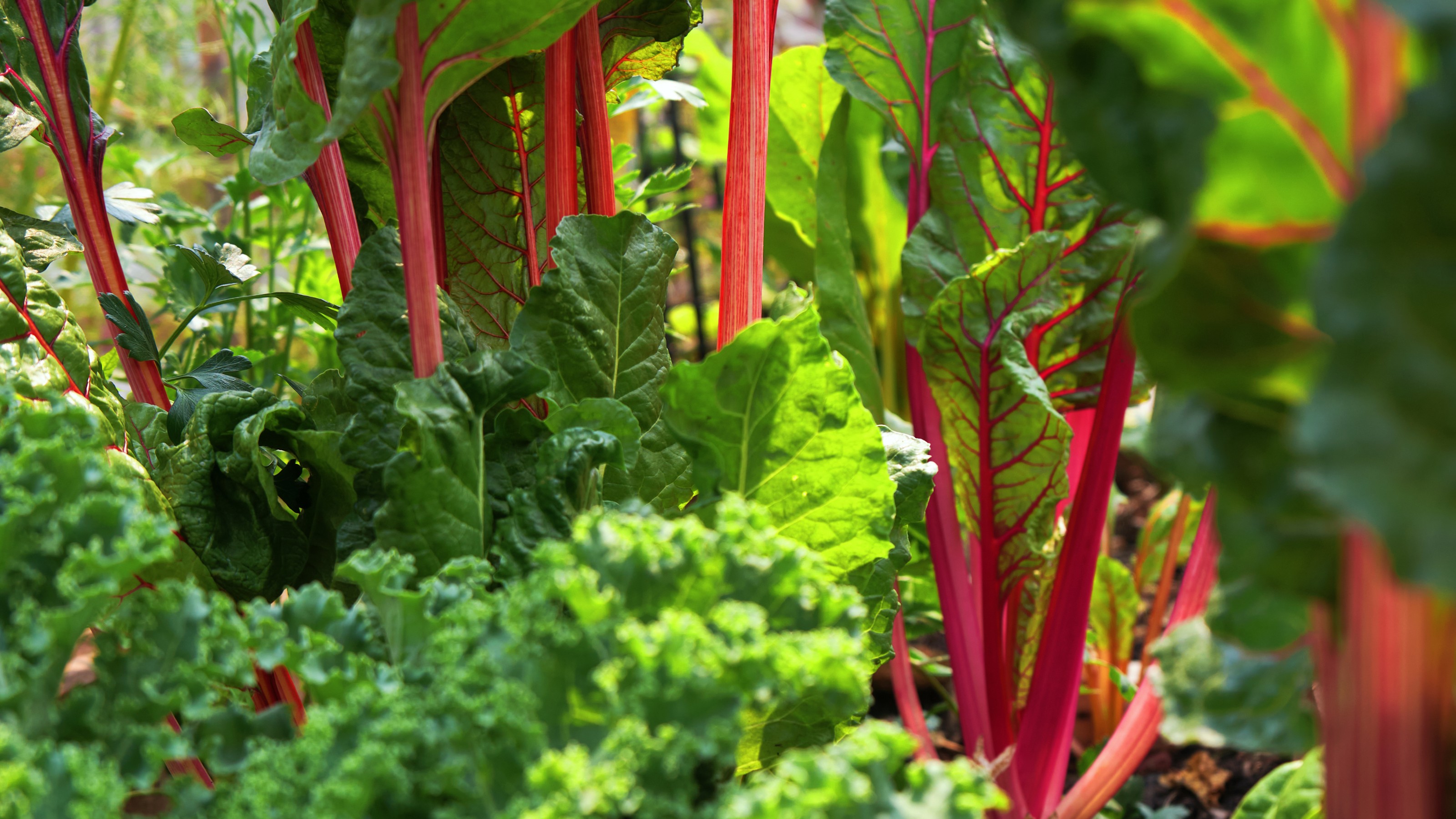
Summer is a busy time in the garden, and if you're wondering what to plant in July, you'll be pleased to know there are still lots of vegetables and flowers you can sow this month.
That means there's still time to see your garden ideas to fruition, whether you're choosing to plant on your flower beds or searching for the perfect way to add colour to your patio or balcony.
We're covering the vegetables and flowers to plant in July, so if you're looking for easy garden ideas this month, you've come to the right place.
What to plant in July
Best vegetables to sow in July
If you've been wondering how to start a small vegetable garden this year, it isn't too late – there are still countless options to choose from if you're wondering what vegetables to plant in July, and with fast-growing varieties, you could be harvesting this season.
We asked the experts what to plant in July for a lush vegetable garden this year.
1. Lettuce
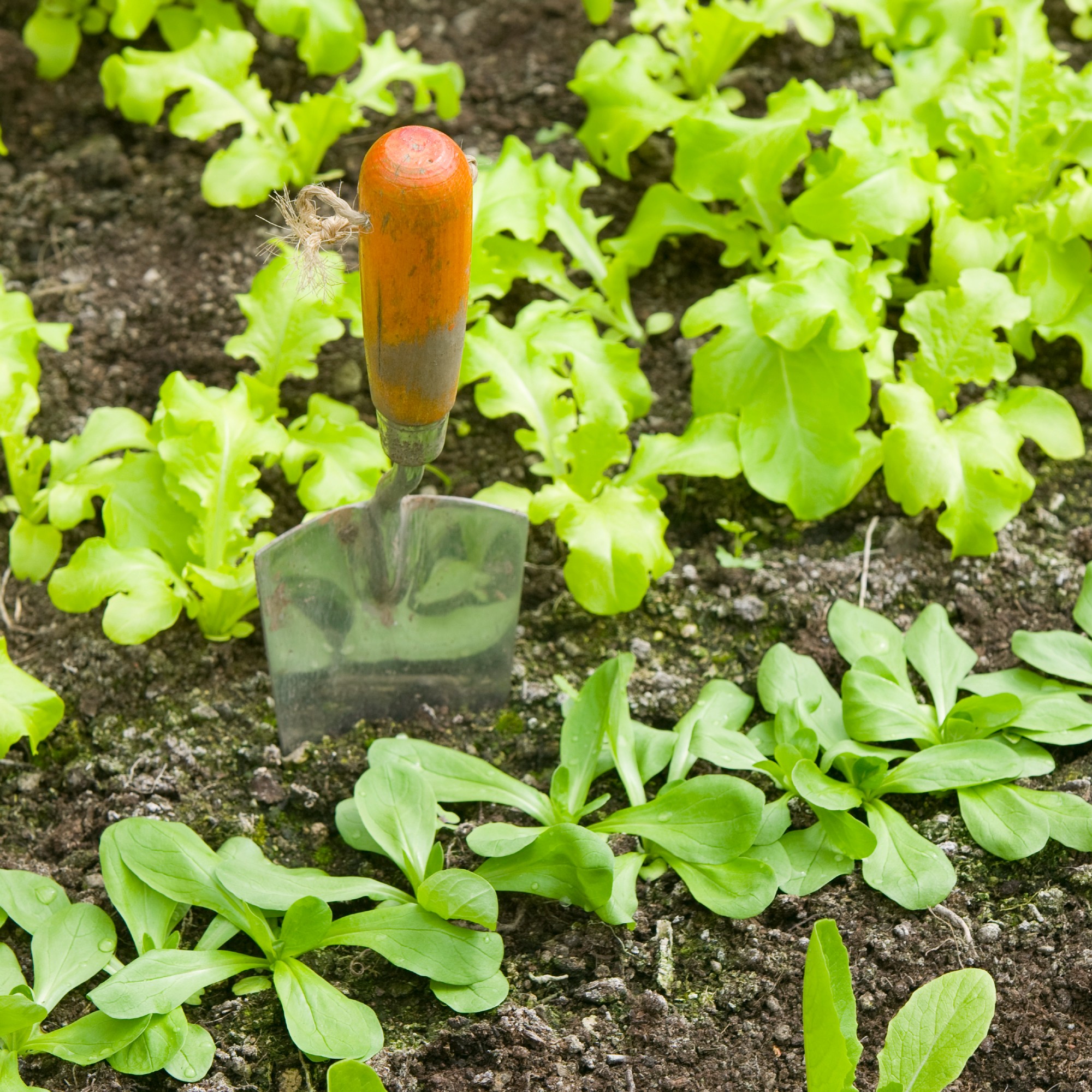
Make lettuce sowings now for late summer and autumn harvests. If you're wondering how to grow lettuce, the good news is that it's often a cut-and-come-again vegetable, so you’ll get more than your money’s worth by investing in a seed packet or two.
‘When growing lettuce, it’s important to ensure that the soil is moist,’ advises John Clifford, director at Gardenstone. ‘If the soil is too dry, the lettuce will start flowering before it has actually matured.
Sign up to our newsletter for style inspiration, real homes, project and garden advice and shopping know-how
‘However, you mustn't overwater your lettuce, as this may result in waterlogged soil and the lettuce may go rotten. To help with moisture retention when sowing lettuce, prepare the soil by mixing it with a multipurpose compost’.
Where to buy lettuce seeds:
- Thompson & Morgan: choose from a wide variety of lettuce seeds.
- B&Q: you can’t go wrong with ‘All the Year Round’ lettuce seeds.
- Suttons: try frilly lettuce seeds for eye-catching salads.

John Clifford is a director of Gardenstone, a leading garden landscaping retailer based in the UK. With over 30 years in the gardening industry and continual work alongside The National Trust, John has amassed an extensive range of gardening and planting knowledge. Alongside his younger son, John has built a strong reputation for Gardenstone as a trusted source for both high-quality garden products and expert gardening advice.
2. Radishes
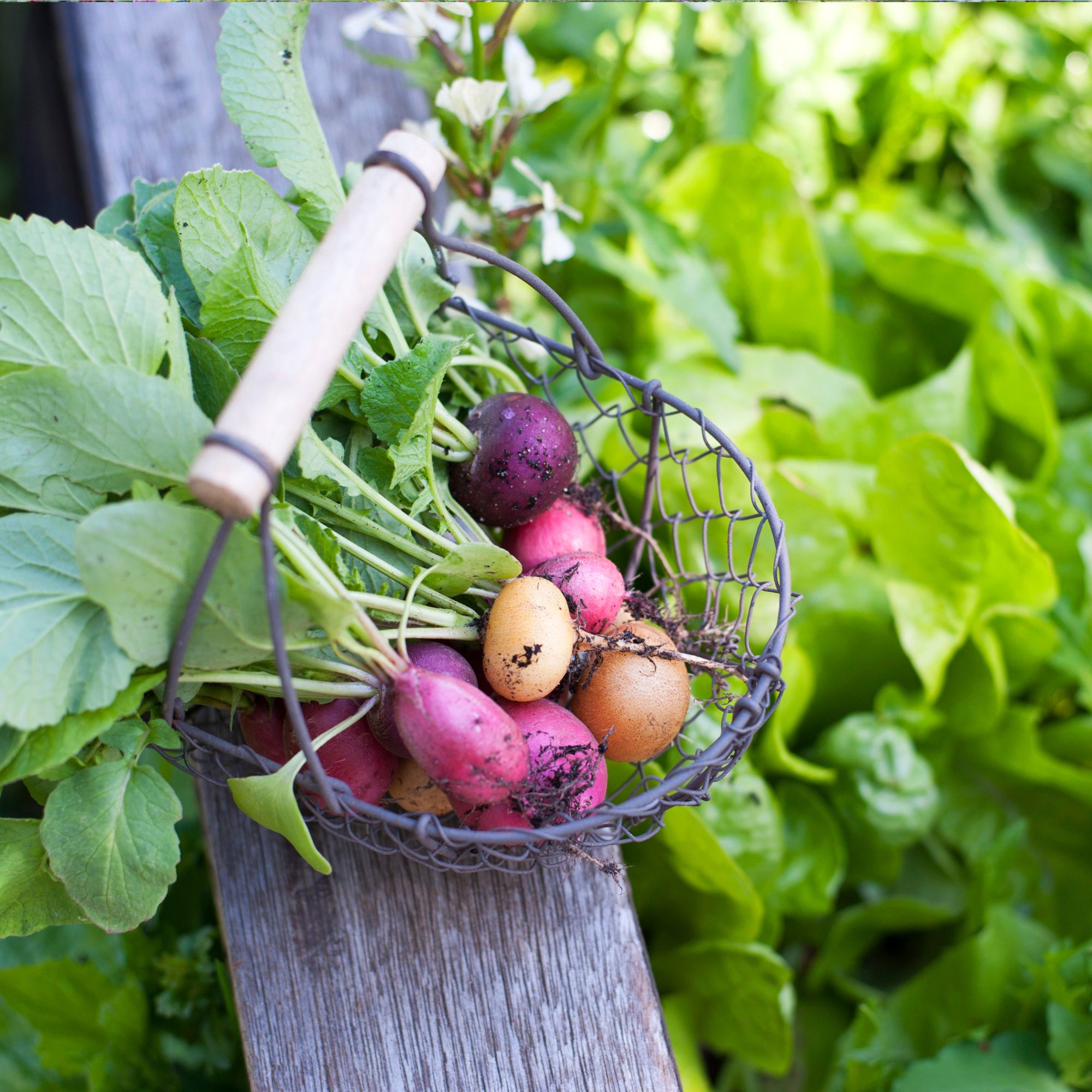
Radishes are perfect for filling in the gaps on your vegetable patch, especially at this time of year when you’re continuously harvesting other plants.
Plus, the roots are quick to mature, so you’ll be enjoying them on your salads in no time.
If you'll be using them as part of you container garden ideas, make sure the pot is at least 30cm wide and deep for best results.
'Harvest radishes promptly when they reach maturity to prevent them from becoming pithy,' advises Tim Marshall, Raby Castle's head gardener.
Where to buy radish seeds:
- Suttons: impress lunch guests by trying royal purple radish seeds.
- Dobies: Choose from over 15 different radish seed varieties.
- Thompson & Morgan: try mooli, a unique kind of radish seed.

Tim Marshall, Raby Castle’s head gardener, has had a career which spans nearly three decades and has taken him all over the world. Now working across County Durham’s Raby Estates, Tim is leading the transformation of the walled garden and the grounds to the north of the castle in the project known as The Rising – working with other high profile garden designers as well as his home team.
3. Carrots
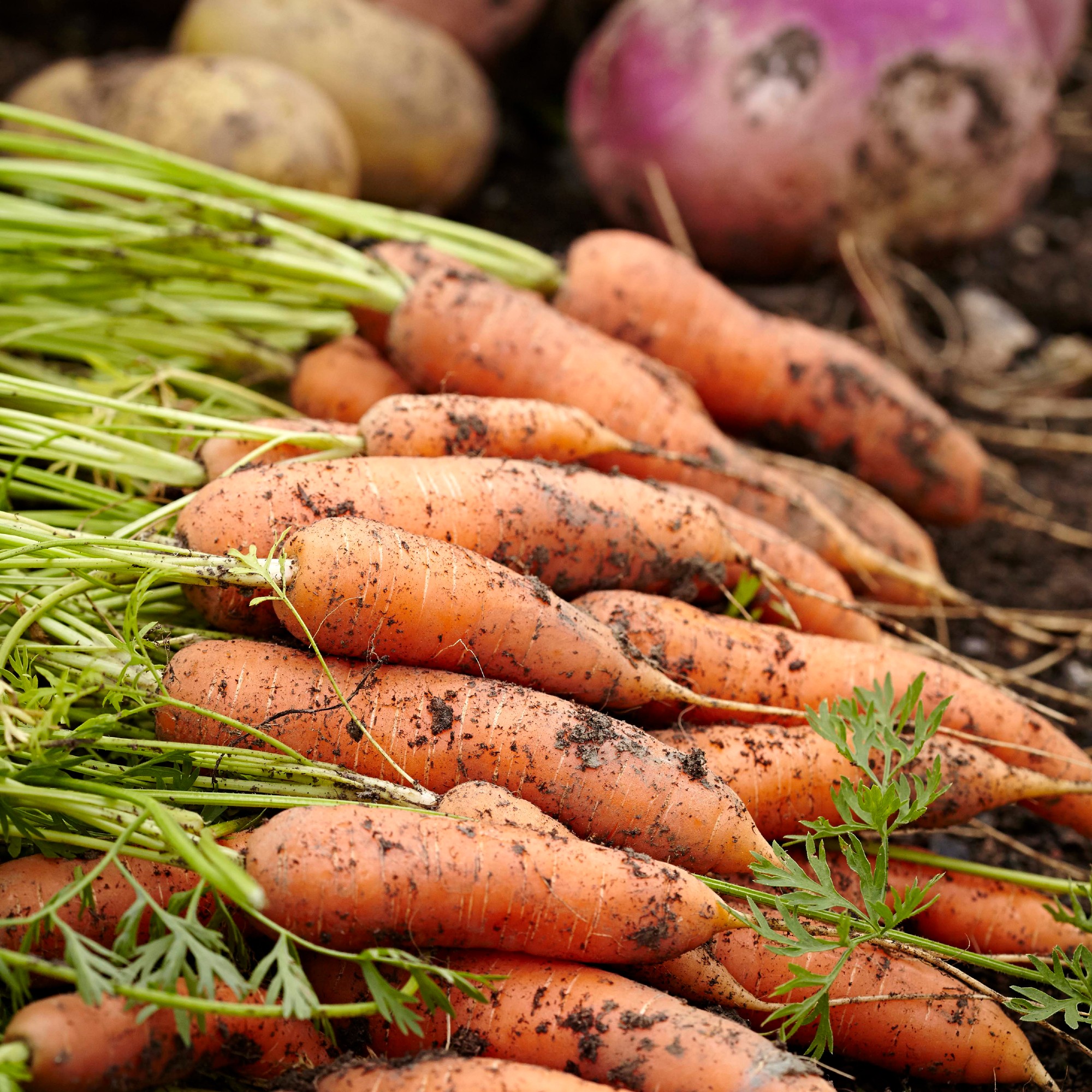
Carrots are a favourite of many vegetable growers, and it’s easy to see why: they’re low-maintenance, and the roots taste better than most you’ll find in a supermarket. But how do you grow carrots successfully?
‘Carrot seeds must be sown in drills in the soil,’ advises John. ‘This refers to small, shallow rows which are made in the soil. As the carrots grow, the drills will help you to distinguish them from weeds.
‘The seedlings are vulnerable to slugs, so protection is necessary to ensure that they can grow in peace.’ Luckily, there are lots of ways to get rid of slugs naturally.
Where to buy carrot seeds:
- Dobies: try out these globe carrot seeds.
- Suttons: grow a rainbow of roots with these carrot seeds.
- Amazon: go mad with this huge selection of carrot seeds.
4. Turnips
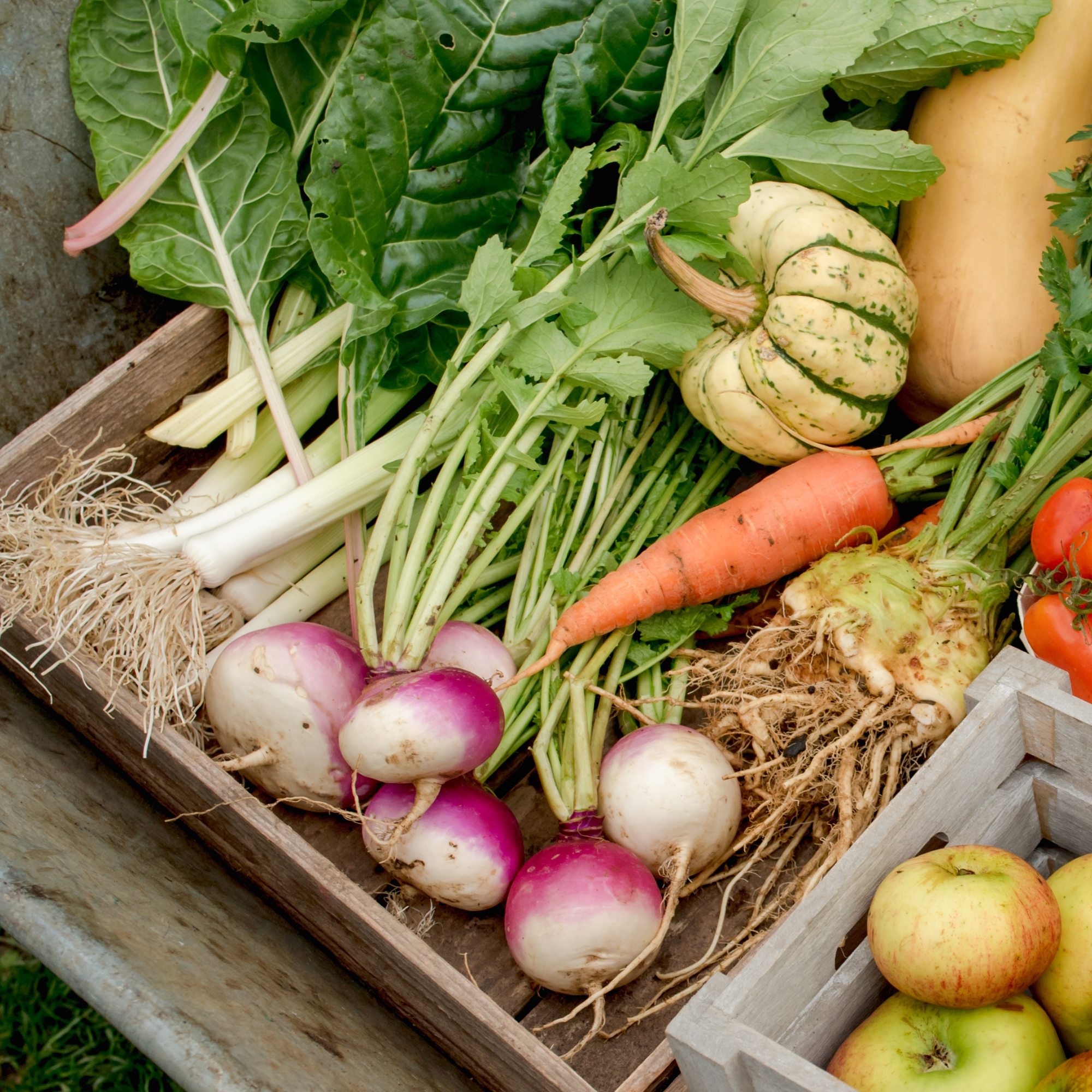
Summer is the prime time to sow maincrop turnips for delicious harvests in autumn. During hot weather, though, it's important to make sure they're getting enough water.
'Water turnips well, as they turn woody if the soil is dry,' advises Chi Chi Dunford, head kitchen gardener at Sculpture by the Lakes.
'I love ‘Tokyo Cross F1’, harvesting the whole plants and quartering the roots with the green tops on. I steam them and season them with olive oil, salt, and pepper!'
What better way to add flavour to autumnal roasts and stews?
Where to buy turnip seeds:
- Thompson & Morgan: try ‘Silky Sweet’ turnip seeds for delicious roots.
- Dobies: sow these turnip seeds for a purple-top classic.
- J Parker’s: sow ‘Snowball’ turnip seeds for fast-growing roots.
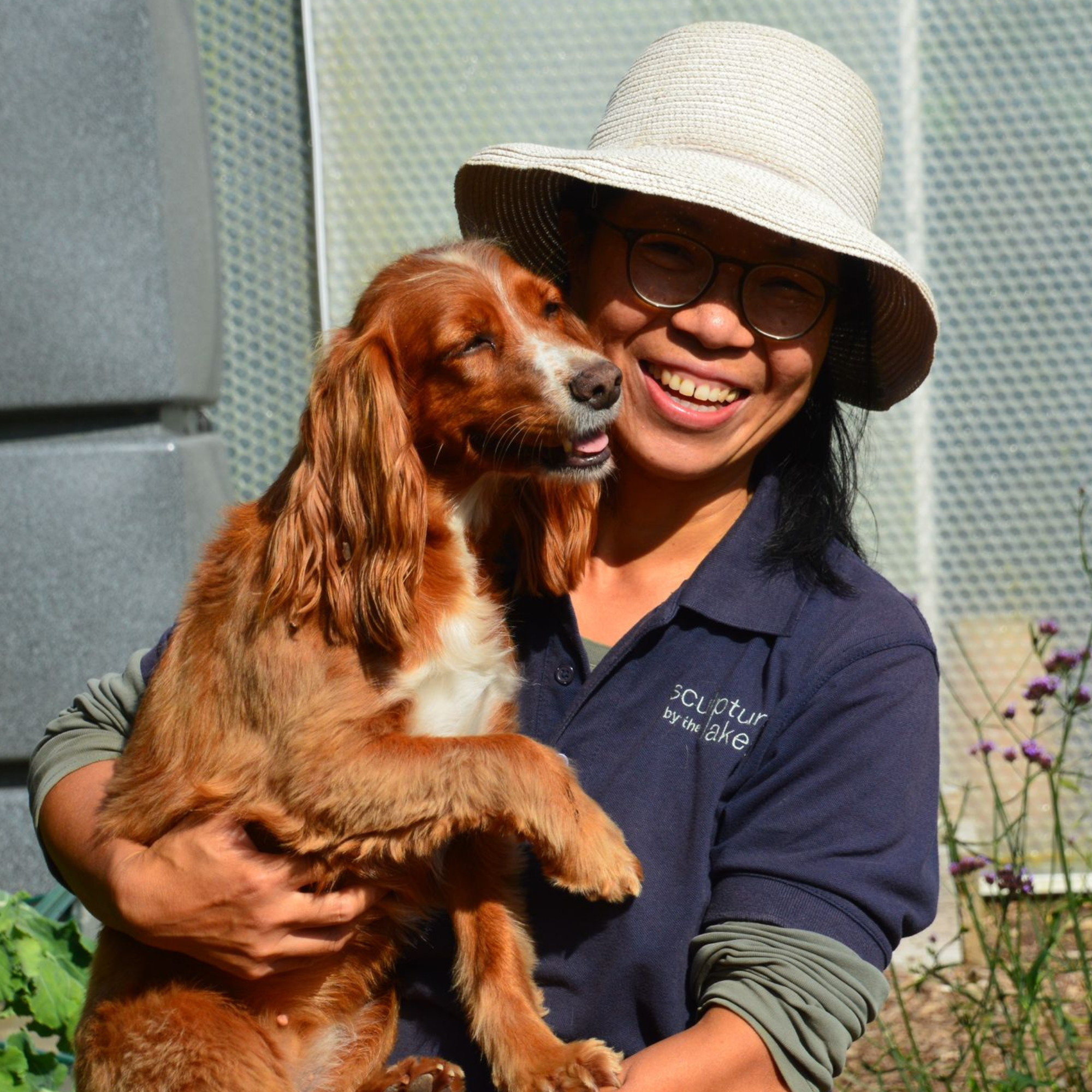
Chi Chi Dunford is the head kitchen gardener at Dorchester’s Sculpture by the Lakes, an internationally accredited botanic garden. Chi Chi joined the team in 2022 and manages the park’s quarter-acre allotment, growing fresh, seasonal produce which is used in the on-site café – the Makers Yard Kitchen.
Chi Chi has a bachelor’s degree in forestry and resource conservation from National Taiwan University. She was also trained as a biodynamic gardener in 2008 and is currently taking an RHS level 3 diploma.
5. Kohlrabi
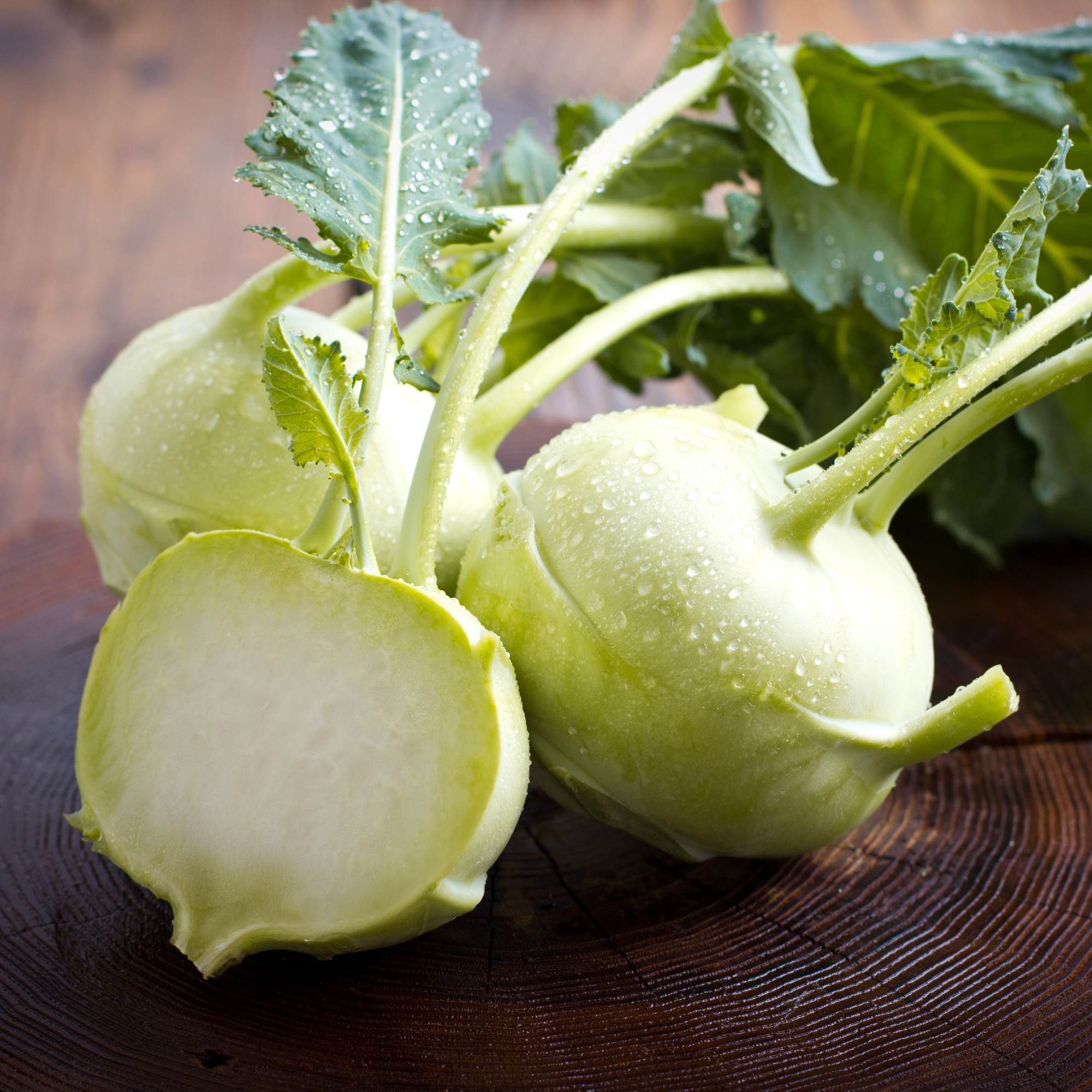
Kohlrabi is less commonly known in the UK, but used widely in Asia and East Europe. However, more and more growers are discovering the versatility and flavour of this vegetable.
'Kohlrabi is fast-growing from sowing to harvesting,' explains Chi Chi. 'Sow in 12 cell modules, two seeds each, and then thin to one seedling per cell. Plant them out when there are three true leaves, and protect them from pigeons with netting.
'Harvest them when they're tennis ball-size. Try both green and purple kohlrabi as they look very different and grow at different speeds, too.
'I like them sliced thin in salads with soy sauce, sesame oil and crushed garlic with coriander, if you like it.'
Where to buy kohlrabi seeds:
- Dobies: purple and white kohlrabi seeds to add to your vegetable garden.
- Crocus: 450 kohlrabi ‘Purple Delicacy’ seeds to keep you stocked up.
- Suttons: try these white globe kohlrabi seeds.
6. Swiss chard
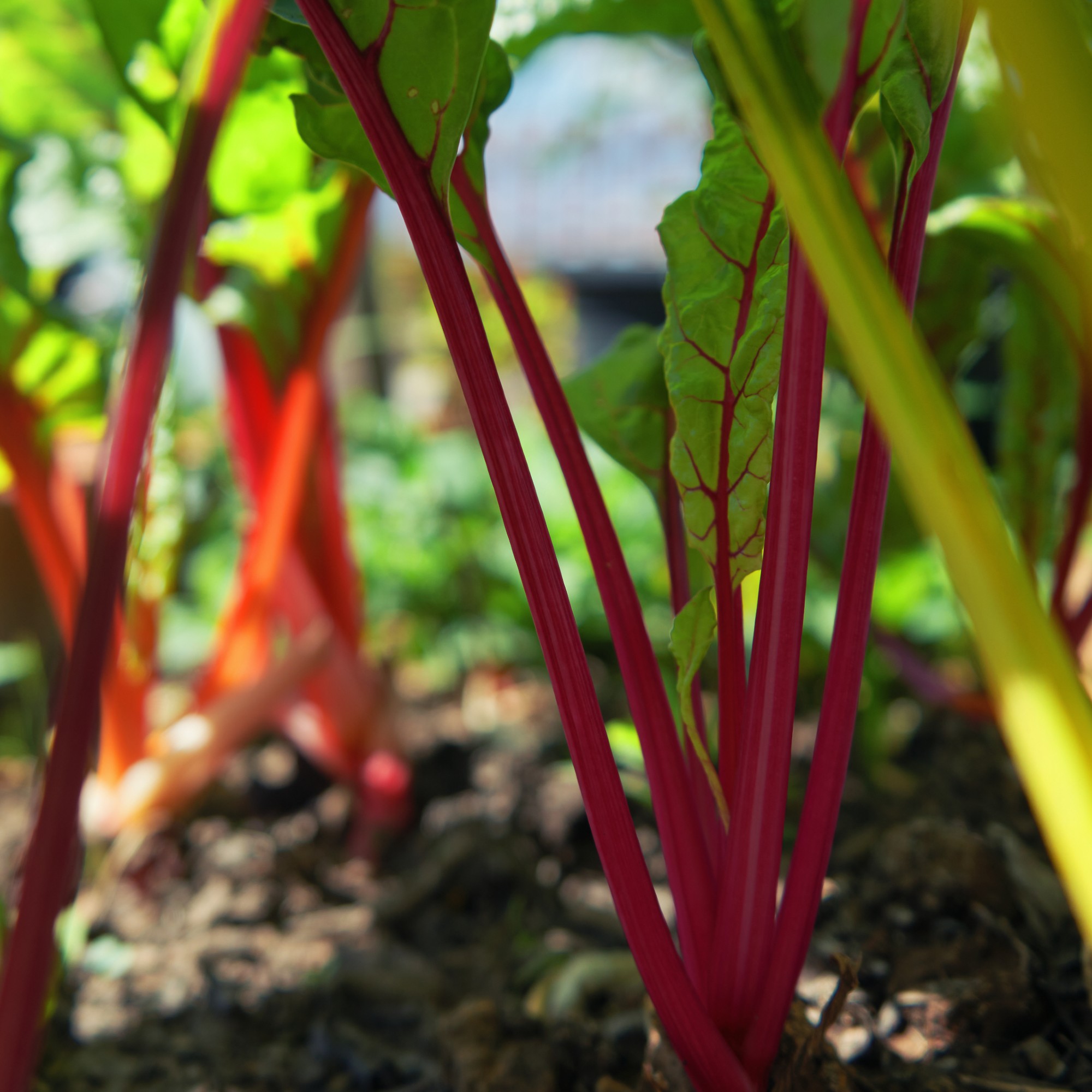
Swiss chard doesn’t just taste good on a salad – it brightens up a vegetable patch, too.
The fun thing about this vegetable is that it’s available in a range of varieties, including the popular rainbow type.
They're hardy, too. 'You can keep harvesting chard right through a mild winter, or they are best undercover,' says Chi Chi. 'With minimum protection, they will provide you with greens through winter until spring.'
'Protect them with netting if birds are a problem.'
Where to buy Swiss chard seeds:
- B&Q: sow ‘Celebration’ seeds for a rainbow display in your garden.
- Suttons: choose from Swiss chard seeds or plug plants.
- Amazon: take your pick from a huge selection of Swiss chard seeds.
Best flowers to grow in July
We're still feeling inspired by the floral displays at this year's RHS Chelsea Flower Show, and the good news is that there's still time to sow a range of different flower seeds in your garden.
So, whether you're looking for flower pot ideas or hoping to try out your cottage garden ideas, we've compiled our top picks for flowers you can plant in July.
1. Foxgloves
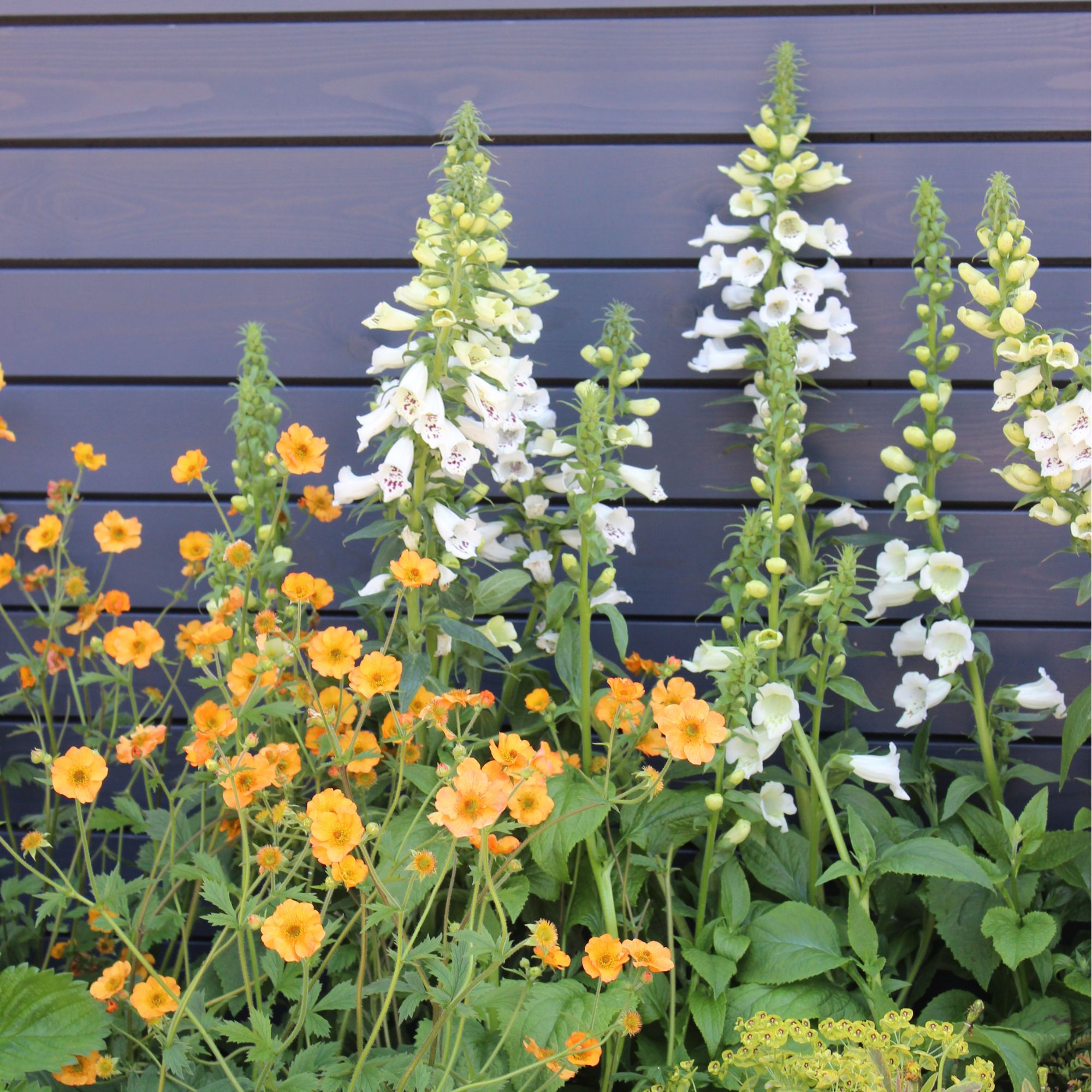
Foxgloves have been all the rage this year, and they really can make striking features in the garden. You still have this month to make sowings, and they’re relatively easy to grow.
'Foxgloves grow best when placed in consistently moist soil, so make sure to water them regularly,’ says John from Gardenstone.
There are some things to watch out for, though. ‘Foxgloves are prone to crown rot, so free-draining soil should be used to avoid waterlogging. When watering, it is essential to ensure that the soil is moist and never soaked.
‘Foxgloves thrive in full sunlight but they can also grow well in an area with partial shade.’
Where to buy foxglove seeds:
- Sarah Raven: grow the cottage garden of your dreams with these foxglove seeds.
- Amazon: 3000 foxglove seeds to keep you going.
- J Parker’s: sow these foxglove seeds for beautiful white blooms.
2. Delphiniums
Delphiniums are another popular flowering plant this year, and the elegant displays are enough to transform a garden.
'Choose a spot in your garden with full sun,' says Morris Hankinson from Hopes Grove Nurseries. 'As delphiniums flower into tall, thin spikes, they can be at risk of snapping in strong winds, so choose a spot in your garden that's sheltered.
'Delphiniums look absolutely beautiful in borders! When planting your delphiniums, prepare your soil, dig a hole (you want your delphinium to be growing at the same depth that it was in the container so use that for size reference), add a layer of compost and then plant your delphinium (making sure the bases of the stems or shoots are above ground).
'Once planted, water well and continue to water and feed regularly, applying a fertiliser at least once a month.'
Where to buy delphinium seeds:
- Crocus: striking delphinium seeds to sprinkle on your border.
- Dobies: sow these delphinium seeds for beautiful cut flowers.
- B&Q: take your pick from this huge range of delphinium seeds.
3. Forget-me-nots
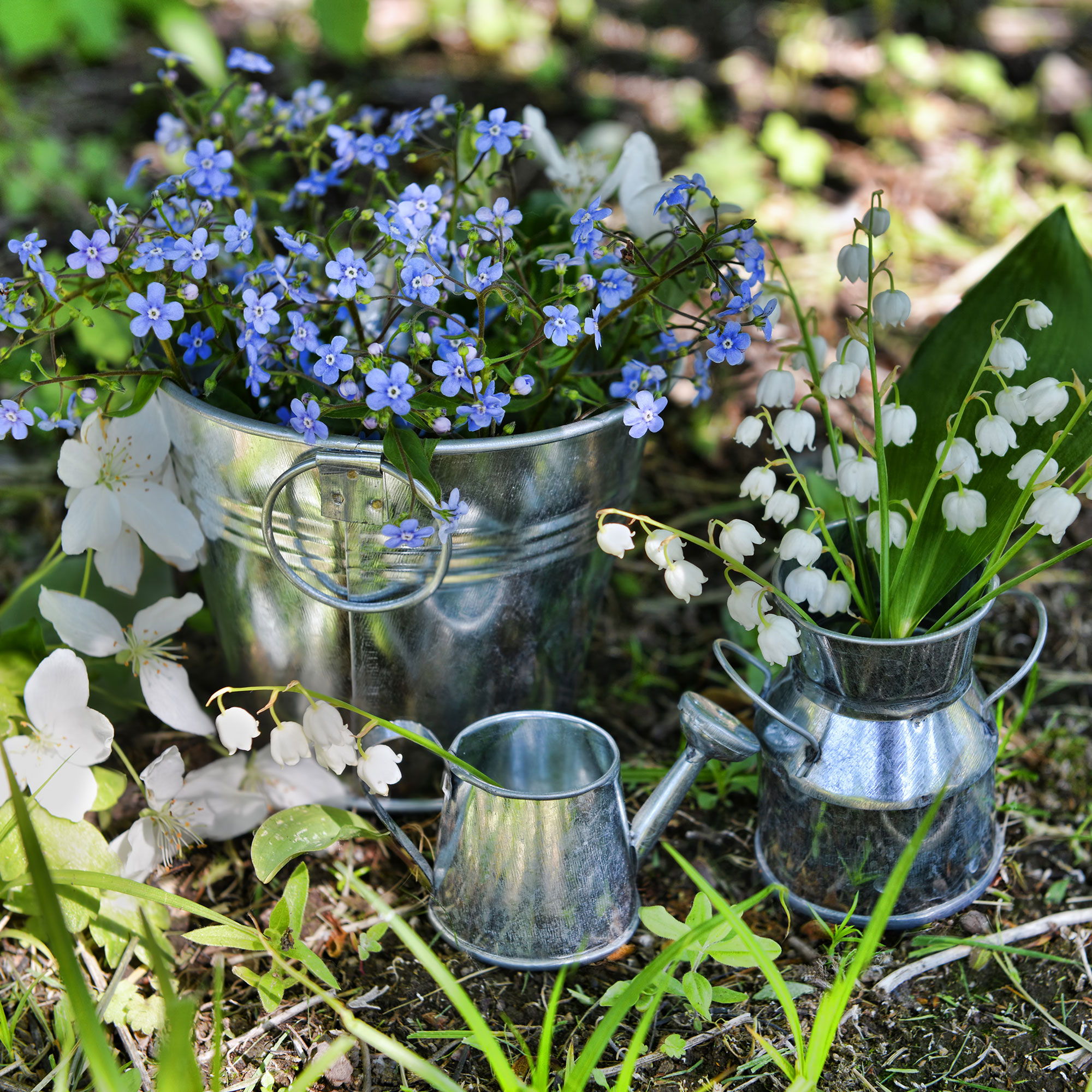
The delicate clusters of forget-me-nots are incredibly pretty, and there is still time to sow them in your garden this year.
Sprinkle the seeds thinly into borders or flowerpots and cover with a thin layer of compost. Make sure you prepare the soil beforehand for the best results.
Bear in mind that forget-me-nots work well in shade, so they’re a great option for brightening up the darker corners of your garden.
'Plant in a shaded area with moist, well-draining soil,' says Tim from Raby Castle. 'Mulch around the plants to help retain moisture and suppress weeds.'
Where to buy forget-me-not seeds:
- B&Q: sprinkle some mixed forget-me-not seeds on your garden.
- Thompson & Morgan: 450 forget-me-not seeds to stock your seed tin.
- John Lewis: these forget-me-not seedballs make the perfect gift.
4. Scabious
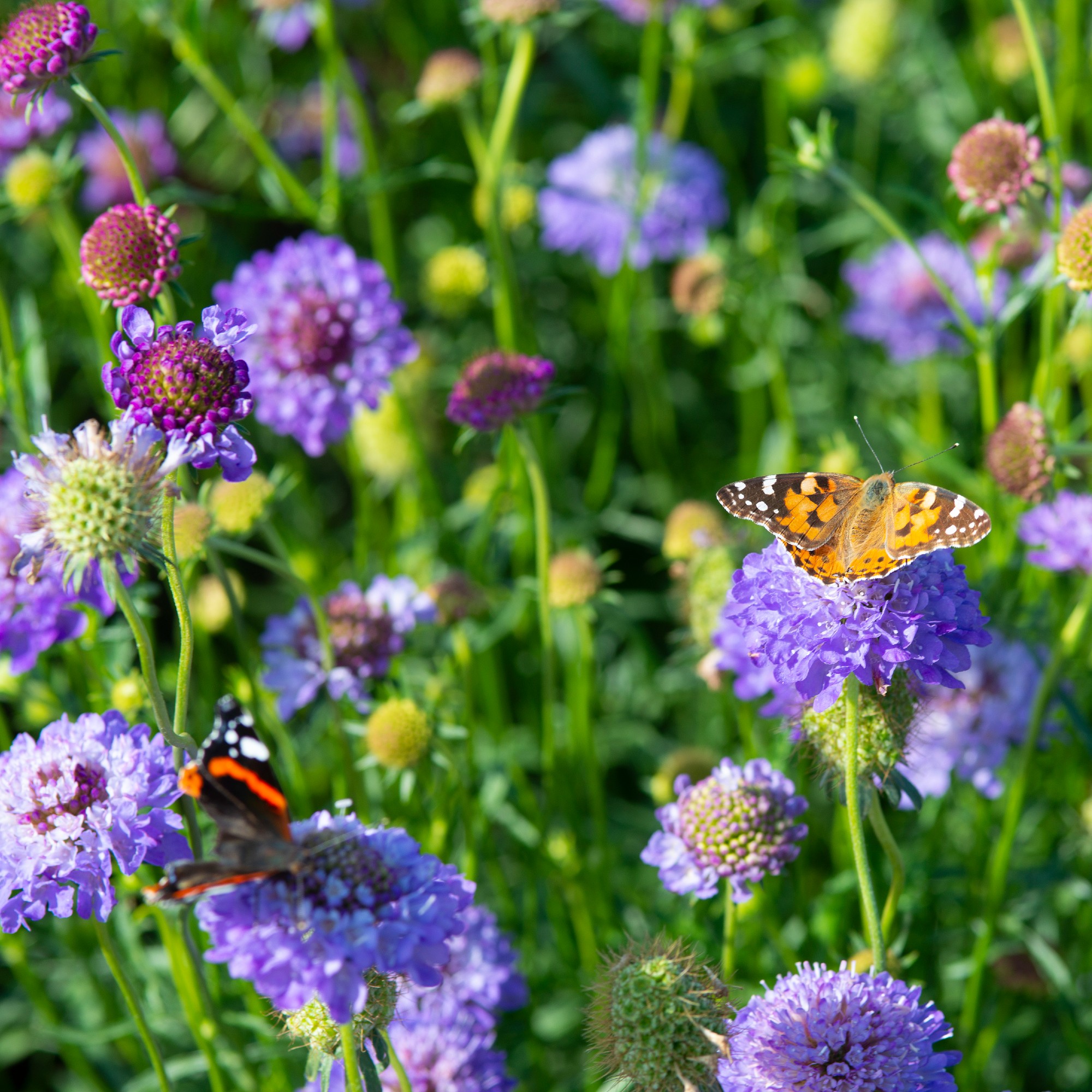
them 'There are two types of Scabiosa I grow in the kitchen garden at Sculpture by the Lakes, and both have beautiful flowers either for cutting or as a garden plant,' says Chi Chi.
'Scabiosa caucasica ‘Perfection Blue’ is very easy to grow from seed. Sow them in a tray of moist compost and cover with a 5mm layer of vermiculite. Prick them out into 7cm pots and grow them on. Protect them from the harsh winter the first year.
'Scabiosa atropurpurea comes in lots of different shades and is a great hardy annual plant for border and cut flowers. Sow them now and you might get flowers in October, or sow them in September for overwintering. You will need to cut the main stem to encourage a bushier plant – otherwise, they will flop over in the wind or after rain.'
Where to buy scabious seeds:
- Sarah Raven: try the stunning scabious atropurpurea ‘Black Cat’ seeds.
- Crocus: stock up on Scabiosa caucasica 'Perfecta Mid Blue' seeds.
- Amazon: classic purple scabious seeds to add to your flower garden.
FAQs
What is the best perennial to plant in July?
'When considering the best perennials to plant in July, it is essential to choose varieties that are heat-tolerant and can establish a strong root system before winter,' says Tim from Raby Castle.
'Some excellent perennial options include black-eyed Susans (Rudbeckia), coneflowers (Echinacea), and daylilies (Hemerocallis), as they are known for their resilience in hot summer conditions and vibrant blooms. These perennials will continue to thrive year after year with proper care.'
What is the best thing to plant in July?
'There are a variety of vegetables that are ideal for planting in July, in particular radish, cabbage and beetroot,' says John from Gardenstone. 'Radishes are fast to mature so you can enjoy them throughout the whole of August.'
'Cabbages are perfect for planting in July as they will be ready in time for November so you can enjoy them on your winter roast dinners.'
Hopefully this list will give you oodles of inspiration for what to plant in July!

Sophie joined the Ideal Home team as Gardens Editor in June 2024. After studying English at Royal Holloway, University of London, she began writing for Grow Your Own, which spurred on her love of gardening. She's tried growing almost every vegetable under the sun, and has a soft spot for roses and dinnerplate dahlias.
As Gardens Editor, Sophie's always on the lookout for the latest garden trend. She loves sharing growing hacks for every space, from herbaceous borders to balconies.